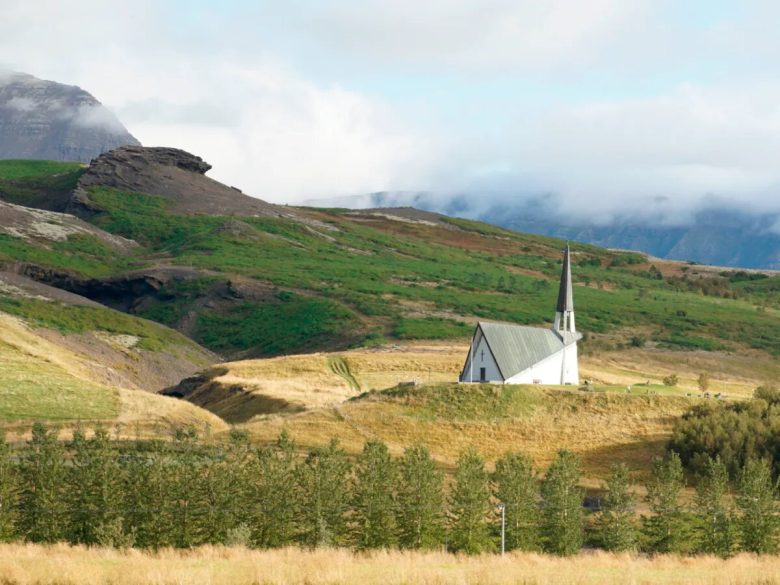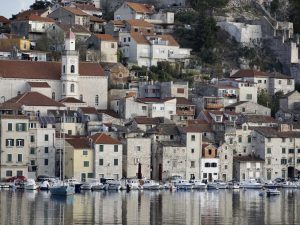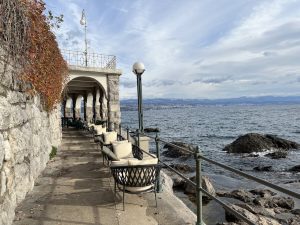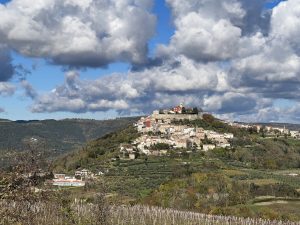A 72-hour layover in the high north
Icelandair offered the lowest fare from the East Coast to Munich, Germany when we shopped for flights in late spring. Like several other national airlines, they offer the option to do a “free” long layover in Iceland as part of the travel. Of course, nothing during the layover is free but the air travel essentially becomes two different travel legs for the price of one. If you have the time and want to spend a few days taking in the major sights, why not?
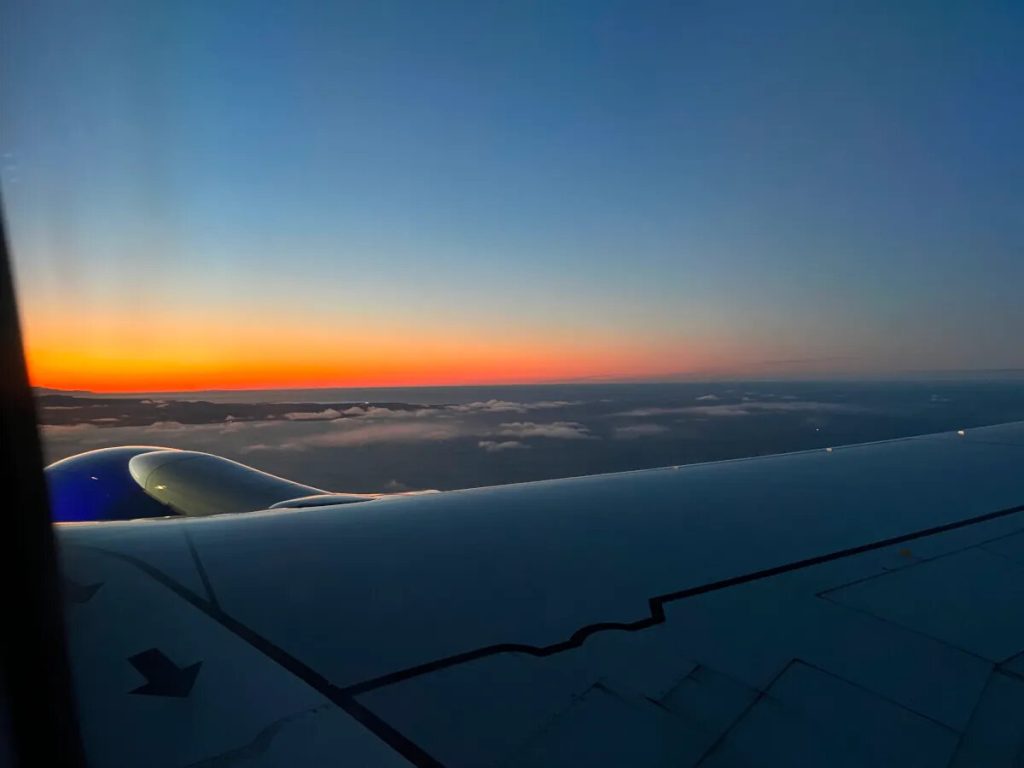
The cheapest fare also means the least convenient times so we ended up departing BWI at 9:00 pm on a Tuesday evening and took a 5 hour flight, landing at 2:15 am East Coast time or 6:15 am Iceland time. Iceland’s latitude should put it in the GMT-1 time zone but in 1968 Iceland permanently went to GMT-0 to be better sync’d with the rest of Europe. As a result, it’s kind of like they are in permanent Daylight Savings. On September 14th when we arrived, Iceland had 13 hours of daylight with sunrise at 6:47 a.m. and sunset at 7:57 p.m. We landed at 6:15 with a gorgeous pink pre-sunrise light on the horizon. It was a beautiful start to three days of great weather.
Our strategy was to stay awake all day, take short naps if needed, and crash hard that night. For the most part we succeeded. The big event for the day was swimming in the Blue Lagoon, which we had reserved tickets for 2 p.m. This gave us the entire morning to explore. I bought the Blue Lagoon tickets for the afternoon fearing we’d be delayed getting through and out of the airport, but it was all so efficient that we were in the rental car less than 45 minutes after wheels down. So we had some time to kill and decided to explore the southwest coast of the island.
Fagradalsfjall volcano
One of my goals was to visit the Fagradalsfjall volcano, which was actively spewing magma as recently as late August. We learned from the guy at the car rental desk that it stopped spewing a few weeks ago. He told us you can check on the Iceland webcam to monitor the volcano.
So the only reward for the 6 mile round-trip hike was to see lava rock and you pretty much can see that EVERYWHERE in the southwest corner of Iceland, especially the area surrounding the Blue Lagoon. We drove past the sleeping volcano and went as far along the south coast as we could before turning back. The coast was pretty with mountains on the left, the north Atlantic on the right, and a narrow stretch of farmland in between. We stopped in one coastal town to take a nap in a parking area and found an interesting sign.
The exciting translation of the sign is “Beware of the Icelandic lasagna hound hiding in the trees”. With the help of Google translate though, the more boring and more accurate translation is “Offleash Dogs Prohibited in [the town of] Årborg (that’s an A like in angstrom)”.
Selfoss
We stopped in the town of Selfoss for a short walk and a nice lunch (fish) then headed to the Blue Lagoon.
The Blue Lagoon
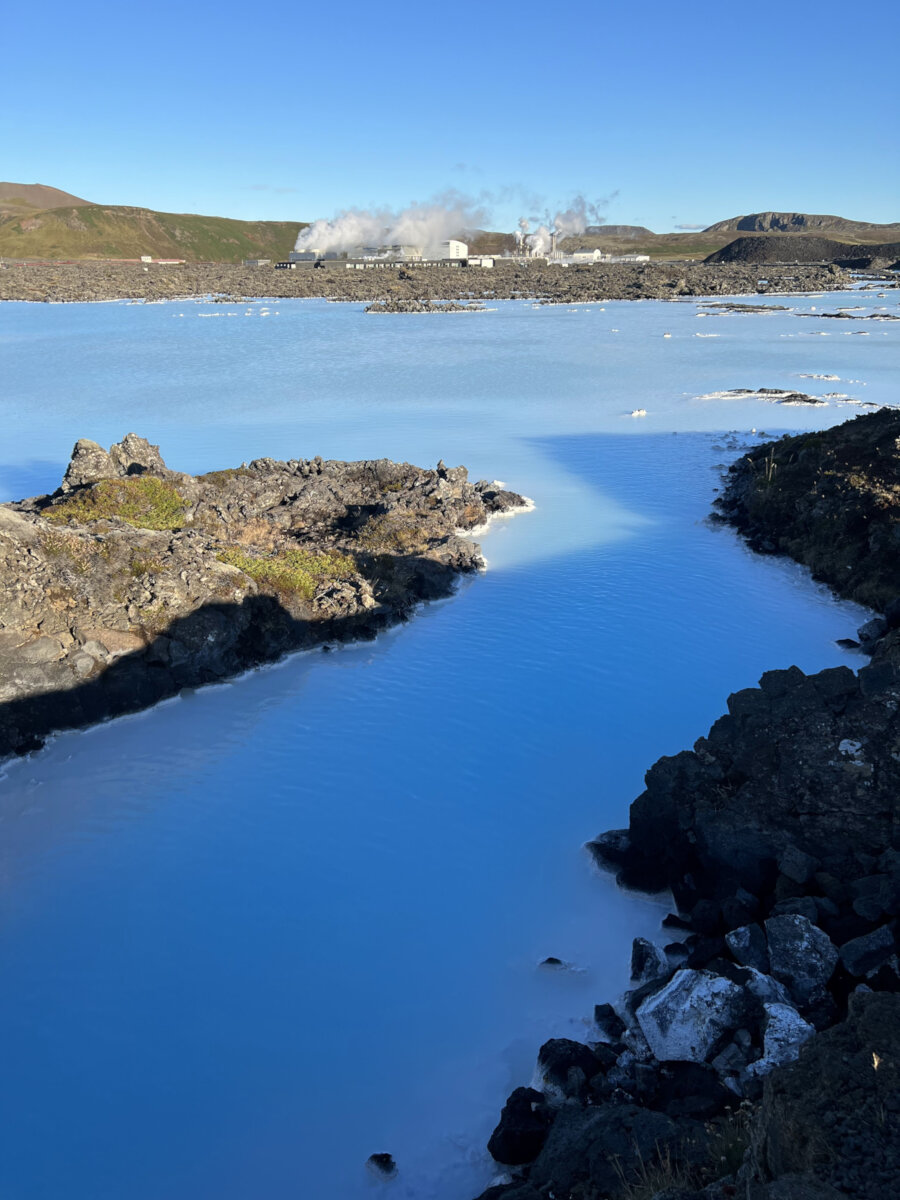
The Blue Lagoon bills itself as a Top 25 wonder of the world, mainly because the silica in the water creates a hue that is truly blue. When you add in a blue sky and a blue-painted manmade lagoon surrounded by a natural landscape of martian-esque lava rocks that look like , the effect is stunning and makes you a believer in the Top 25 claim. And that’s before you even get in the water, which is just fantastic with pockets of warm and pockets of hot across a swimming pool that deserves every bit of its lagoon status. The base admission was $85 per person (this is one of those once in a life moments though). The first upgrade was $100 per person/. The extra $15 got us extra applications of lava and algae skin creams plus a complimentary drink (beer) at the swim-up bar. The next upgrade above that was something like $400 and included facials, massages and other full-spa experiences (no thank you).
The ponds shown above are entirely natural (not a glorified swimming pool) located just outside the Blue Lagoon itself. The term “Blue Lagoon” is a misnomer because this is a spring-fed phenomena and is neither connected to any larger body of water nor does it have a coral reef barrier. The Blue Pond just doesn’t sound as good, I guess. It’s definitely a blue something though!
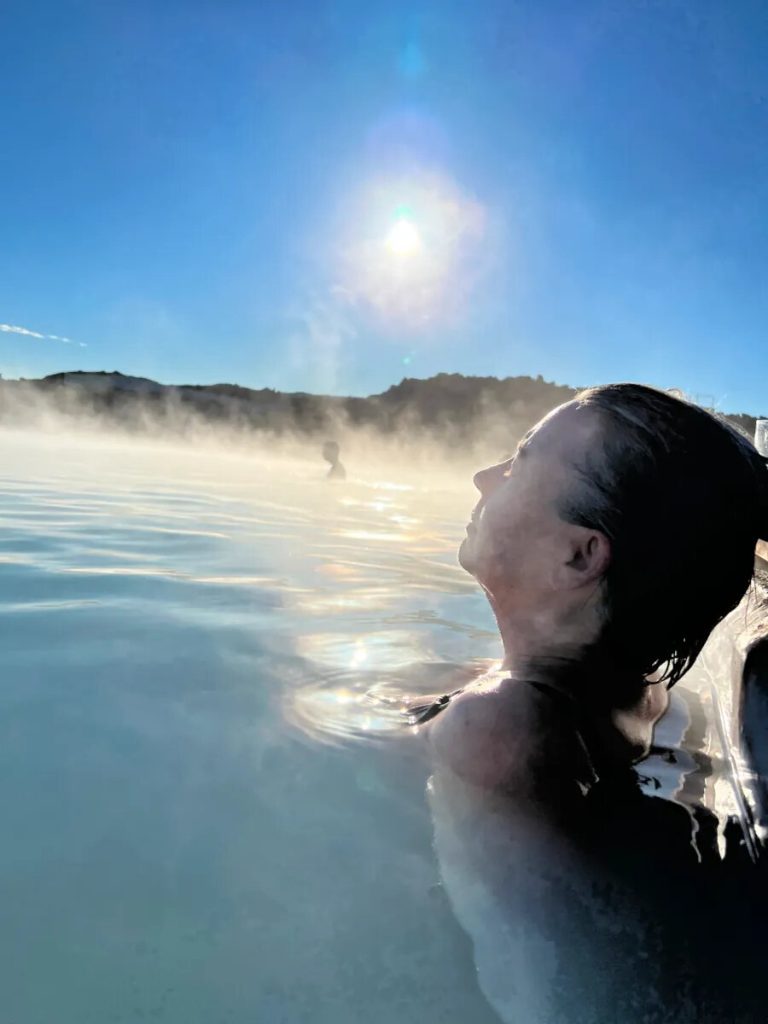
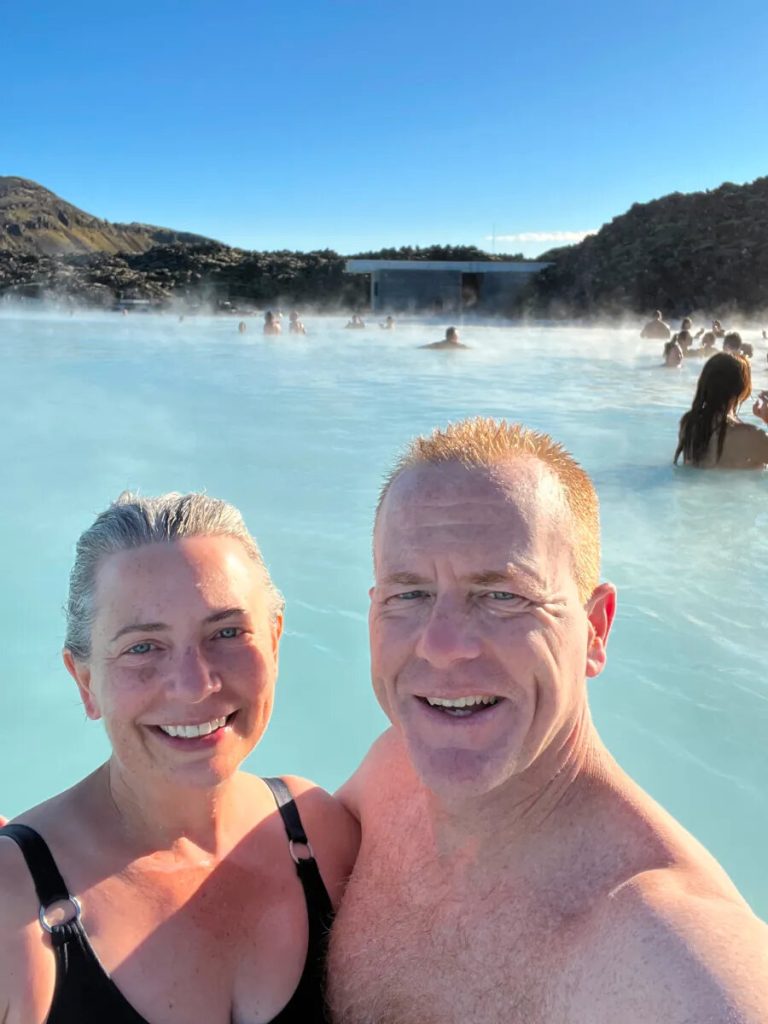
We spent most of our time just enjoying the pool and the applications of facial gunk (everyone else was doing it so we did it, too). A LOT of people were going into this salt water bath carrying their iPhones, taking selfies, posting on Insta, etc. We spent most of our time feeling bad for them that they couldn’t just enjoy the moment. In the end, though, we couldn’t resist so I went back and bravely spent 15 minutes clutching my iPhone to get some footage of our three hour visit. Well worth the risk. Get used to seeing lots of “Brian and Lyn selfies”. We miss having kids to photograph.
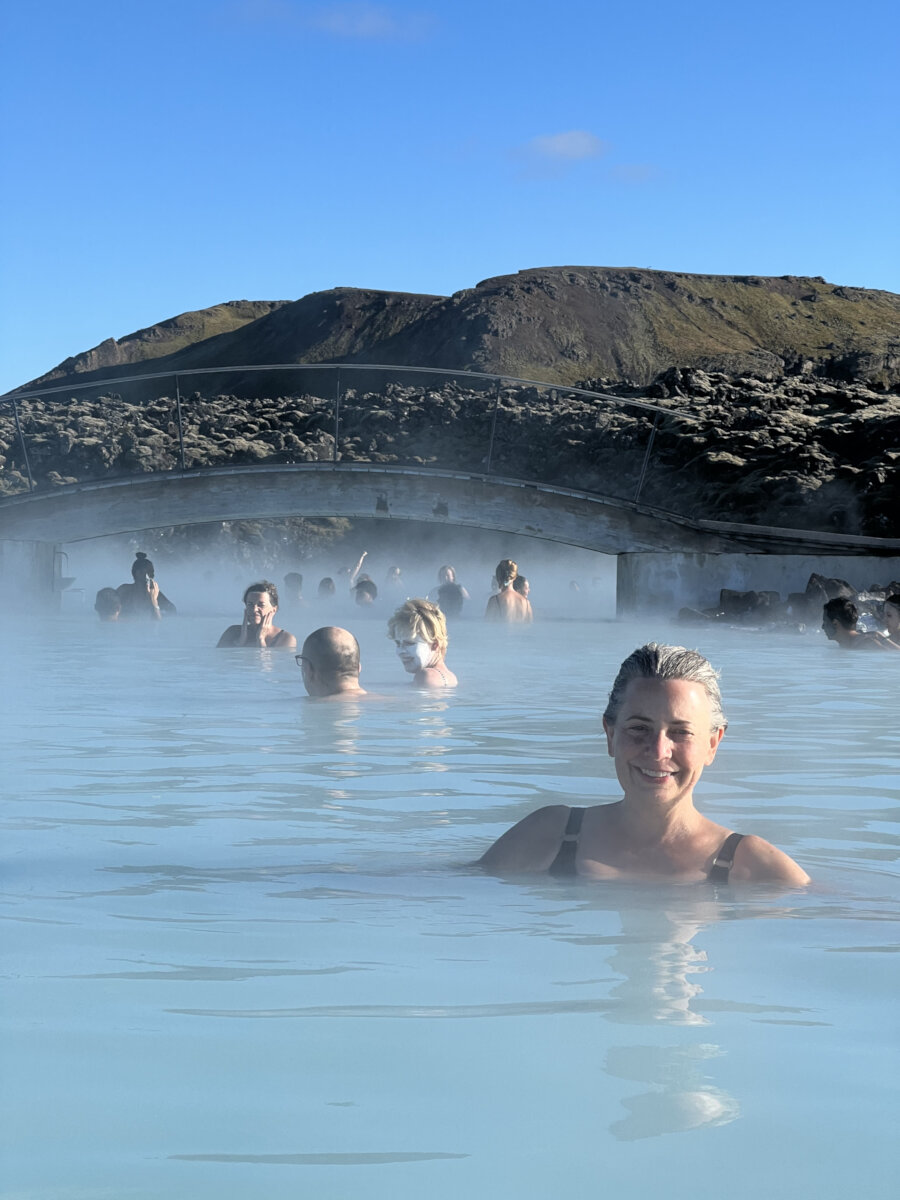
The point of this picture is to show the people with the facial cream (see lady in the background). The Blue Lagoon is constantly refreshed and the skin cream is water soluble so it’s like one giant community bathtub.
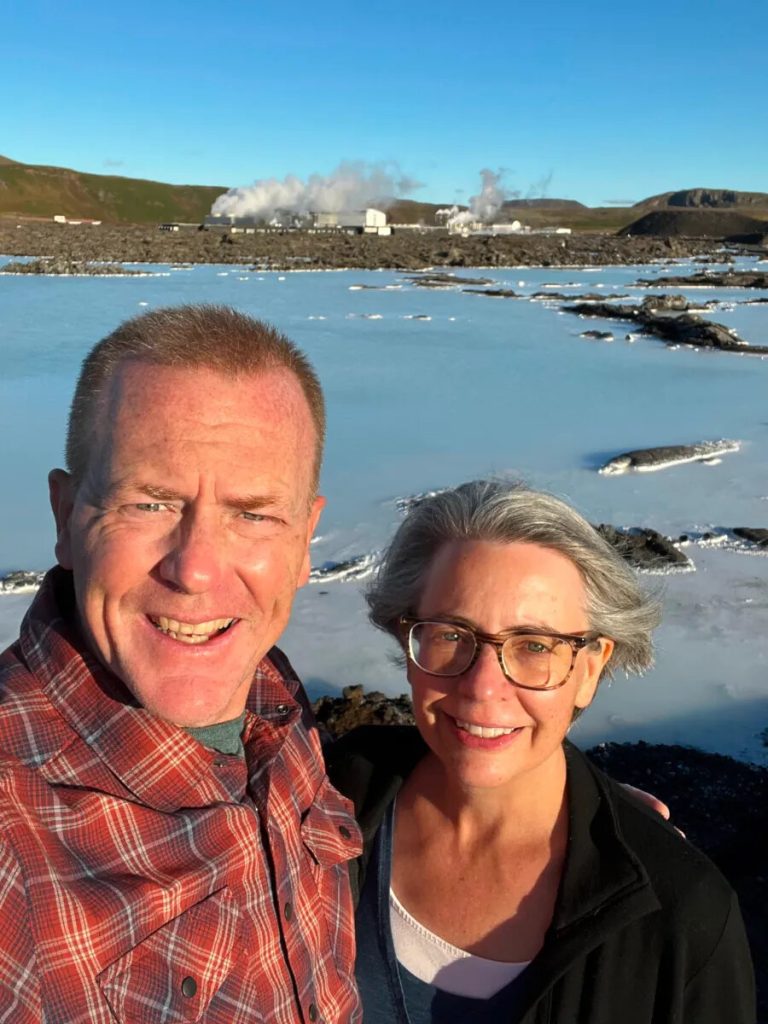
This is us upon departure from the Blue Lagoon after three hours of soaking and a 4-part facial application of lava mud, algae cream, and moisturizer. At this point, we had each slept about 1-2 hours in the past 36 hours. Don’t we look refreshed and re-vitalized though? I could have spent another four hours in there. Fun experience and a great way to fight the jet lag.
Reykjavik
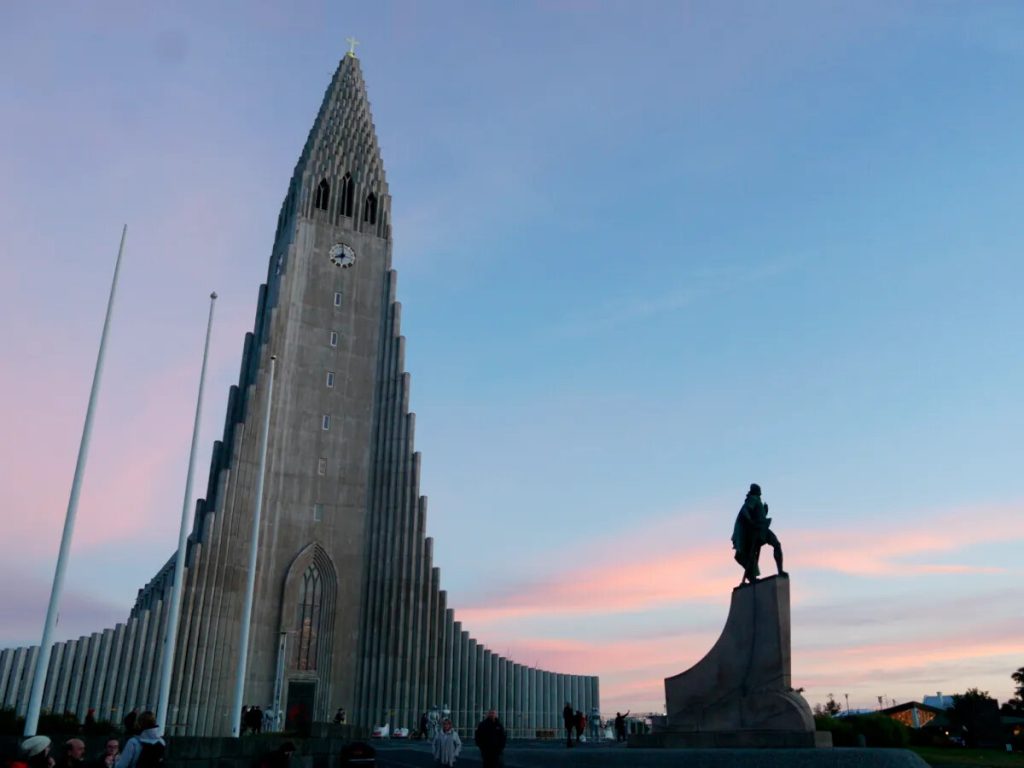
We booked a room on Expedia at the Sunna Guesthouse in Reykjavik. What I saw online was “free parking”, “well-appointed rooms”, and “good location to main sights in Reykjavik”. What I overlooked was “shared toilet”, “shared shower”, and “shared kitchen”. It worked out great though because we shared the toilet and shower with only two other rooms and the guesthouse was literally across the street from the Hallgrímskirkja cathedral and the sculpture garden of The National Einar Jónsson Gallery.
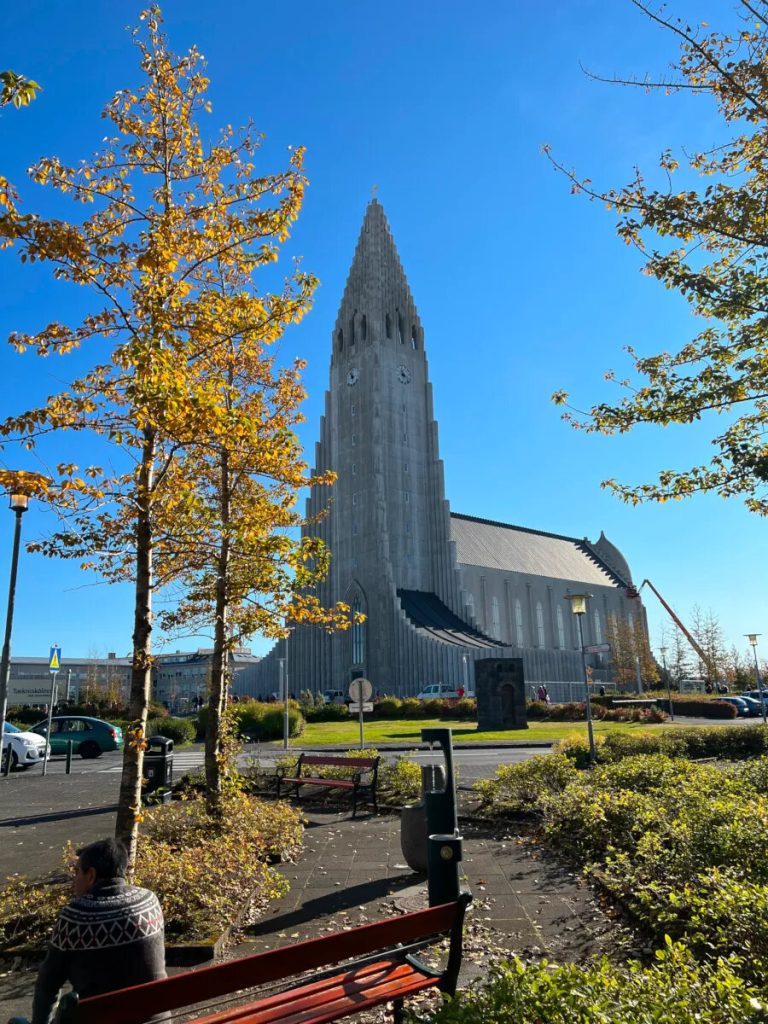
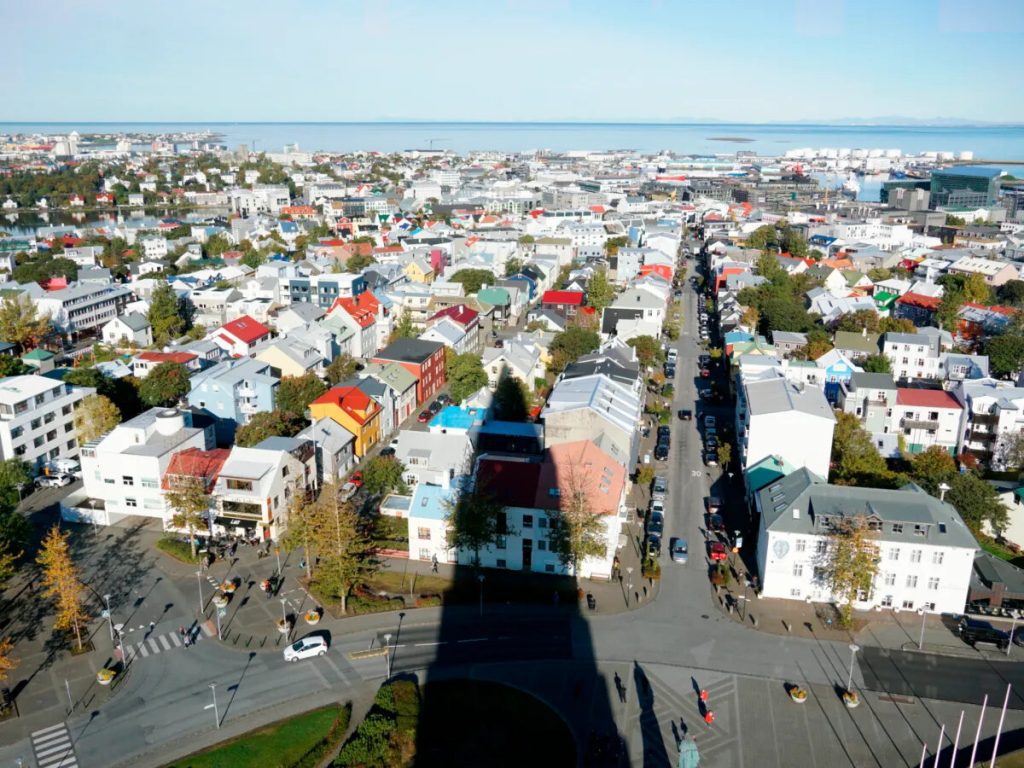
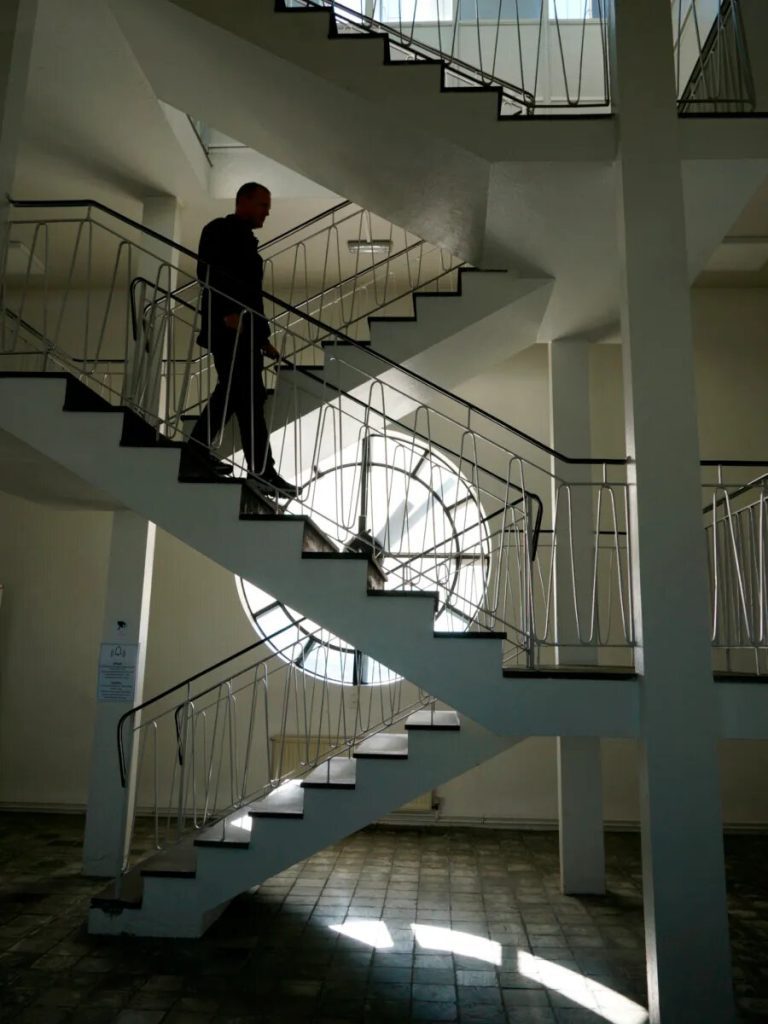
On Day 2, we spent the morning sightseeing in Reykjavik, including a trip up the elevator to the bell tower of Hallgrímskirkja cathedral. The trees were showing the first tinges of autumn. In the reverse angle photo, the sculpture museum is the green roofed building on the left and our guest house is immediately above it. We were across the street from the (free) sculpture garden behind the museum.
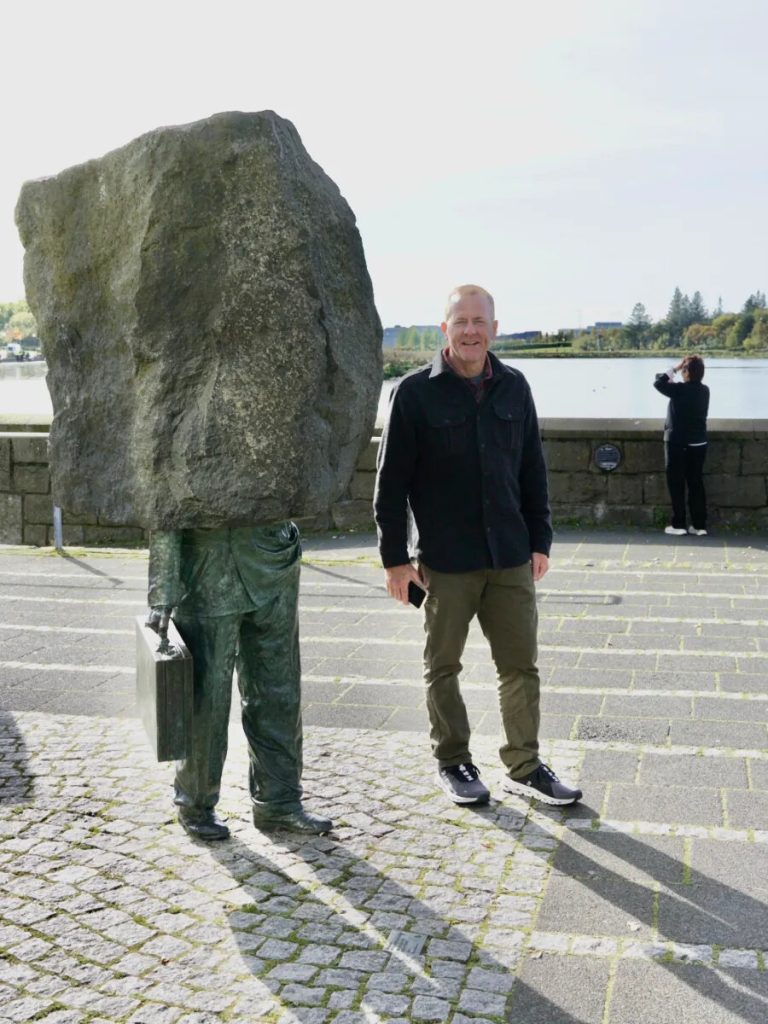
We found this sculpture near the City Hall. The bottom half is a guy in a business suit carrying a briefcase. Being good art, it had a message for me about my next career. I’m not sure what exactly, but was saying something.
Around town
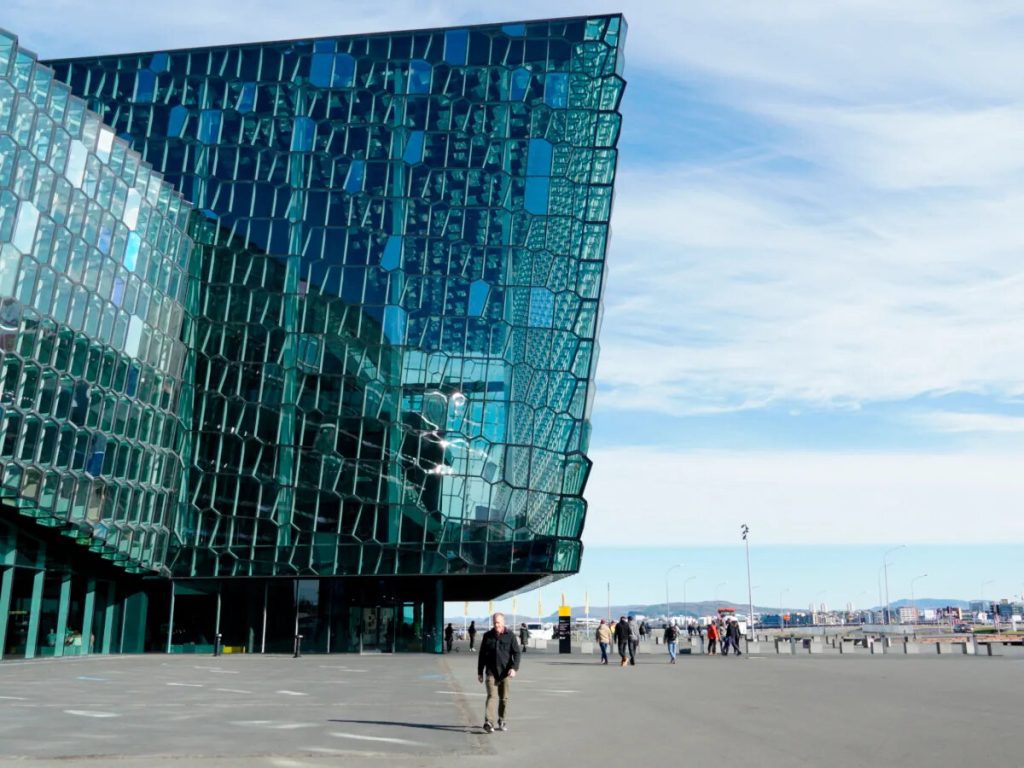
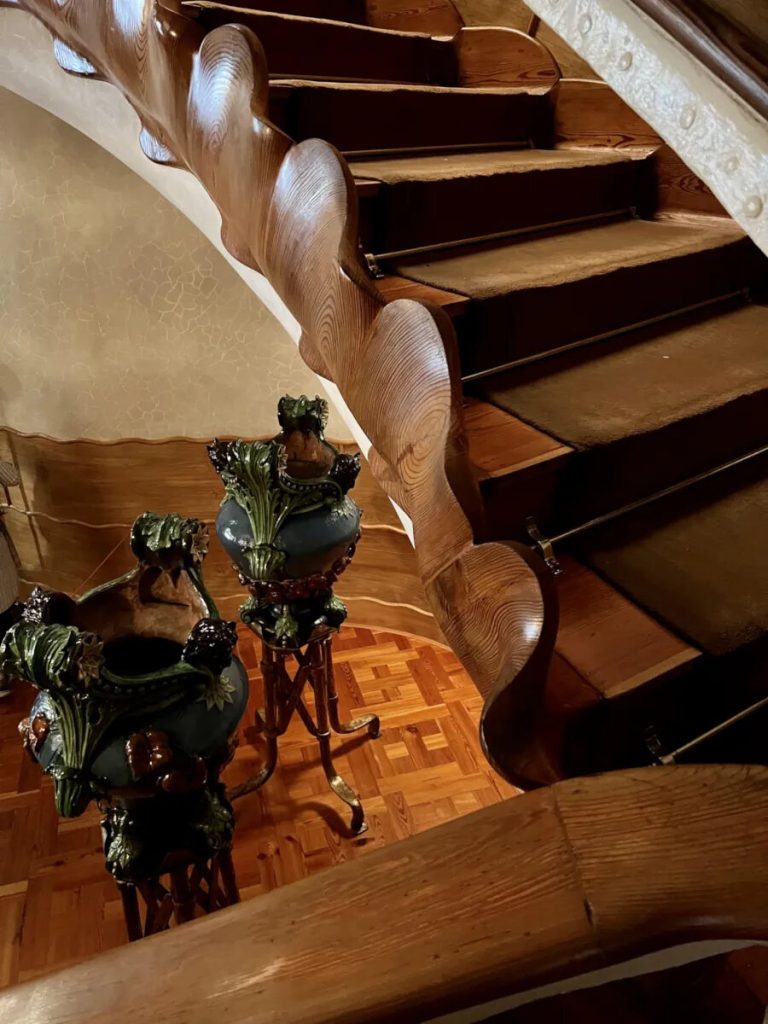
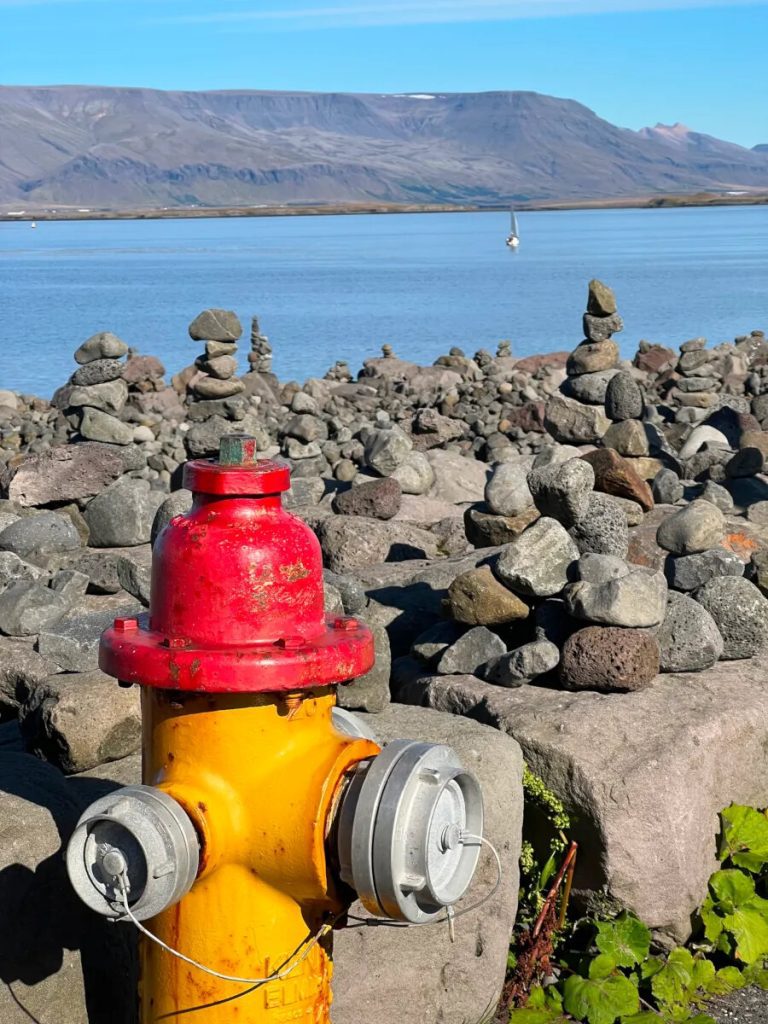
Downtown we found Reykjavik performing arts center. Super cool architecture. We also found USNS PATHFINDER inport Reykjavik. You can take the boy out of the Navy but you can’t take the Navy out of the boy. Go chart those oceans! And where you find rocks, you find cairns. This is next to the performing arts center on the seawall in Reykjavik.
Reykjadalur hot river
After a morning of exploring the downtown, we hopped in the car and ventured 30 minutes east. There we hiked to Reykjadalur hot springs.
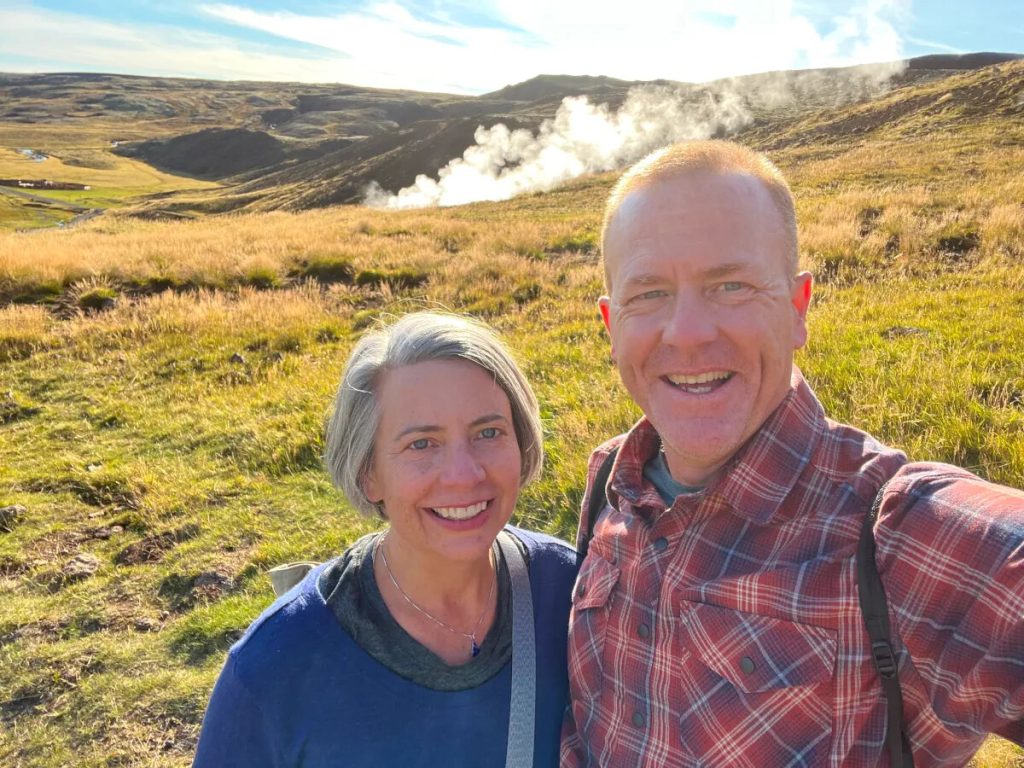
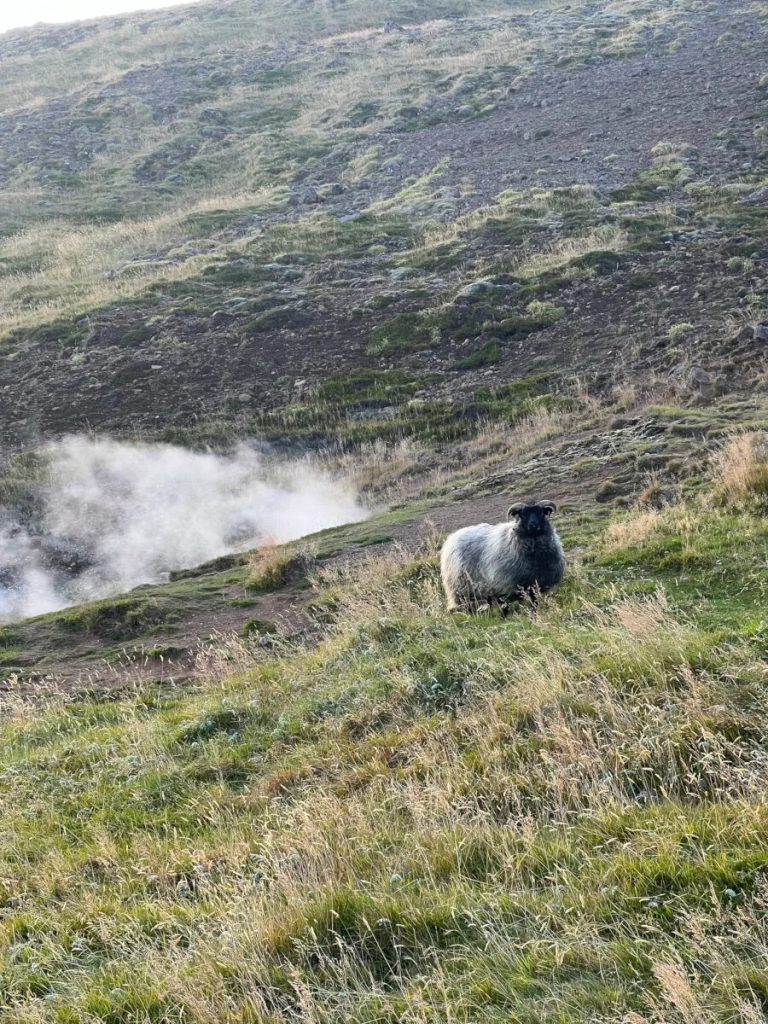
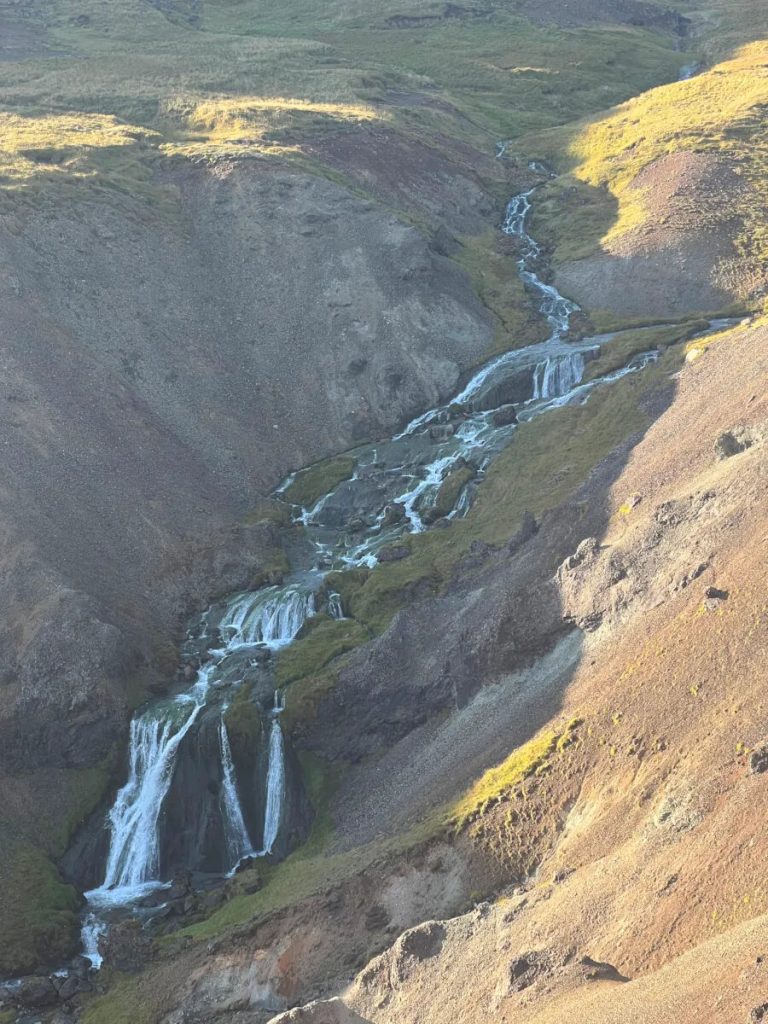
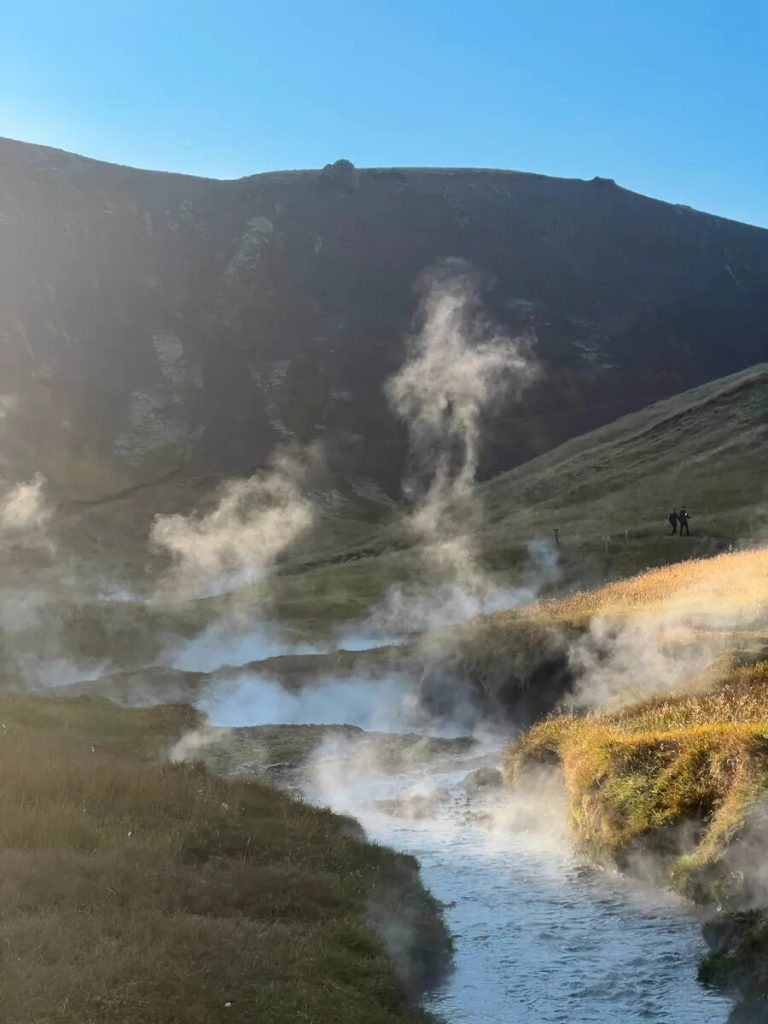
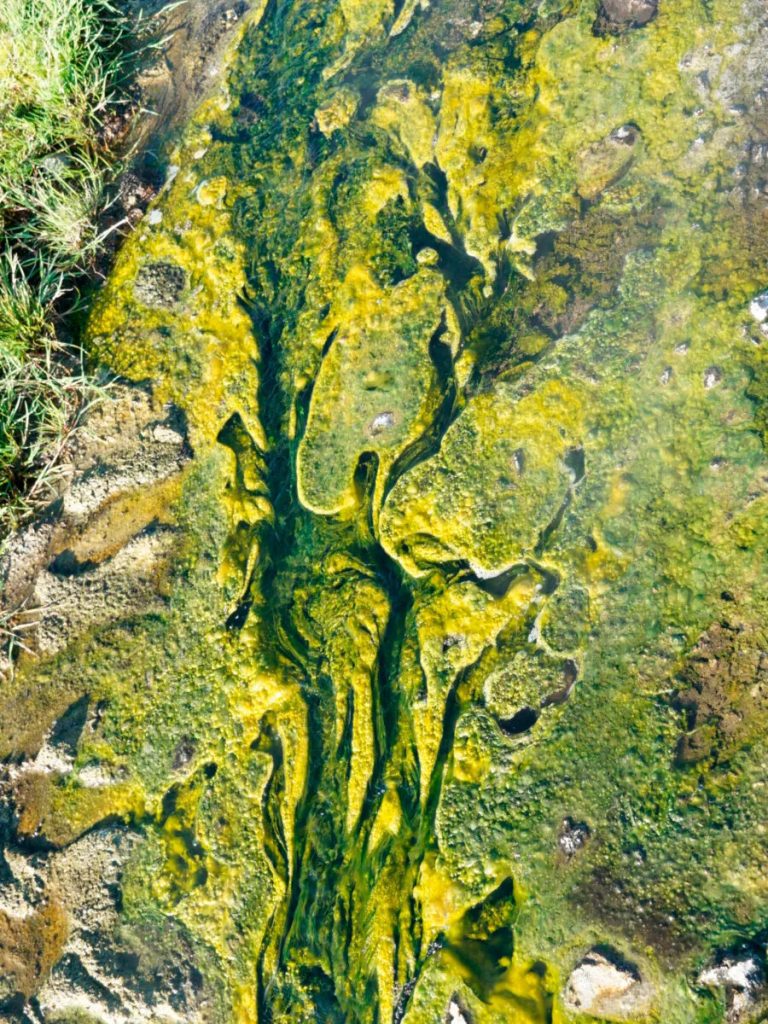
As a result of our Blue Lagoon adventure the previous day, we felt fulfilled with getting wet and opted not to swim in the hot river at Reykjadalur. The only photos we got of the section of river with the swimmers are on Lyn’s camera. I was leery of breaking out my cell phone because the “dressing room” is pretty much the open air and the Europeans are way less inhibited about changing into swim gear (which thankfully everyone was wearing). If you look at the website, about 12 pictures down, that’s pretty much the scene we found after our 2.5 mile hike up the valley (the photo is slightly more crowded). Next time we’ll bring our suits.
https://guidetoiceland.is/connect-with-locals/regina/reykjadalur-hot-spring-valley-in-south-iceland
Golden Circle
On Day 3, we drove the “Golden Circle” which is a marketing label for seeing some of the main attractions accessible from Reykjavik. Most people who have visited Iceland have done the Golden Circle but the attractions don’t disappoint. This was our travel route:
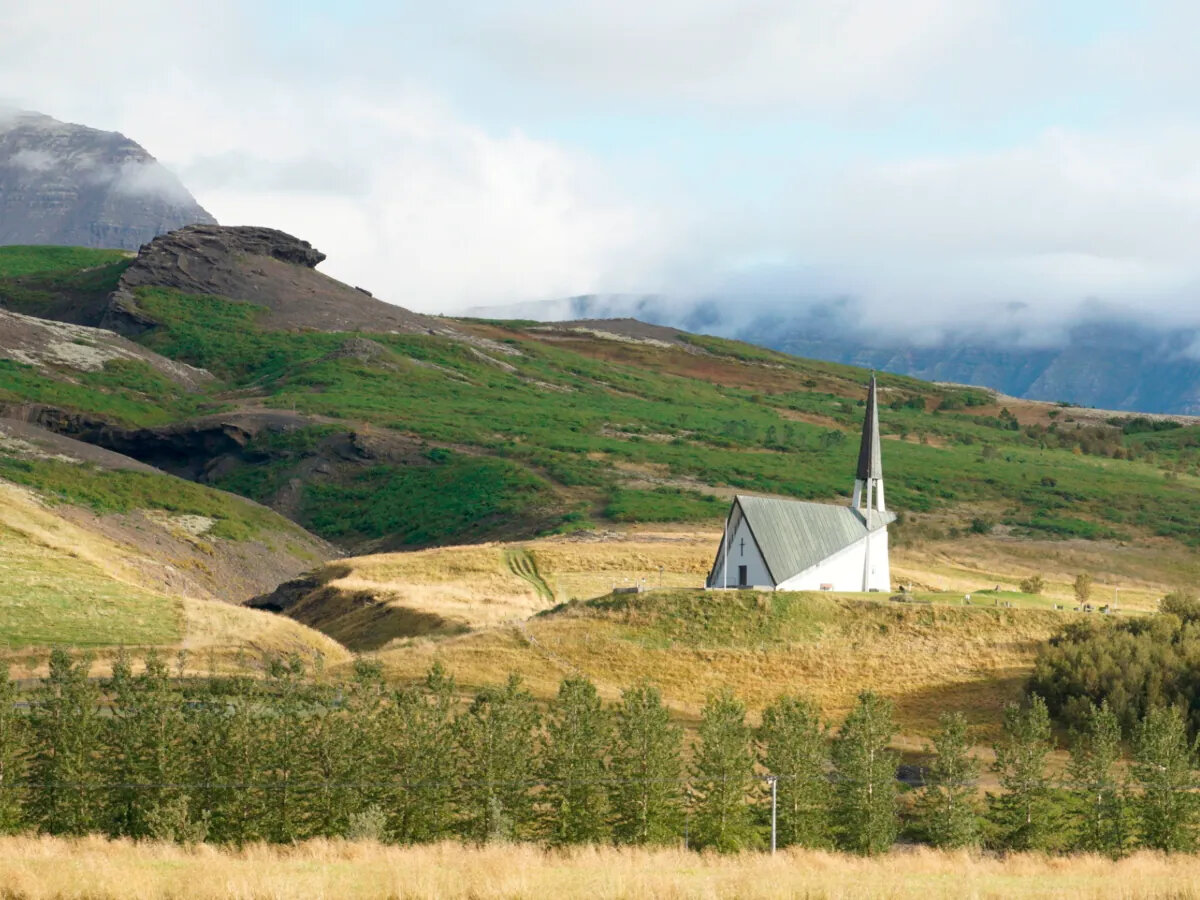
Þingvellir National Monument
We first visited Thingvellir National Monument (written as Þingvellir but the Þ is pronounced with a TH sound). Geologically, THingvellir is a site where you can observe opposing cliffs with a gap in between, showing where the North American tectonic plate and European tectonic plate meet deep underground, which is the main reason why Iceland has so much geothermal and volcanic activity. Historically, Thingvellir is the birthplace of Icelandic government where chieftains would meet periodically to discuss matters of mutual concern…over 1,000 year ago. Thingvellir holds deep meaning for the Icelandic people and their pride in the legacy of self-rule is evident in the effort they put into preserving this place of beauty and historical significance.
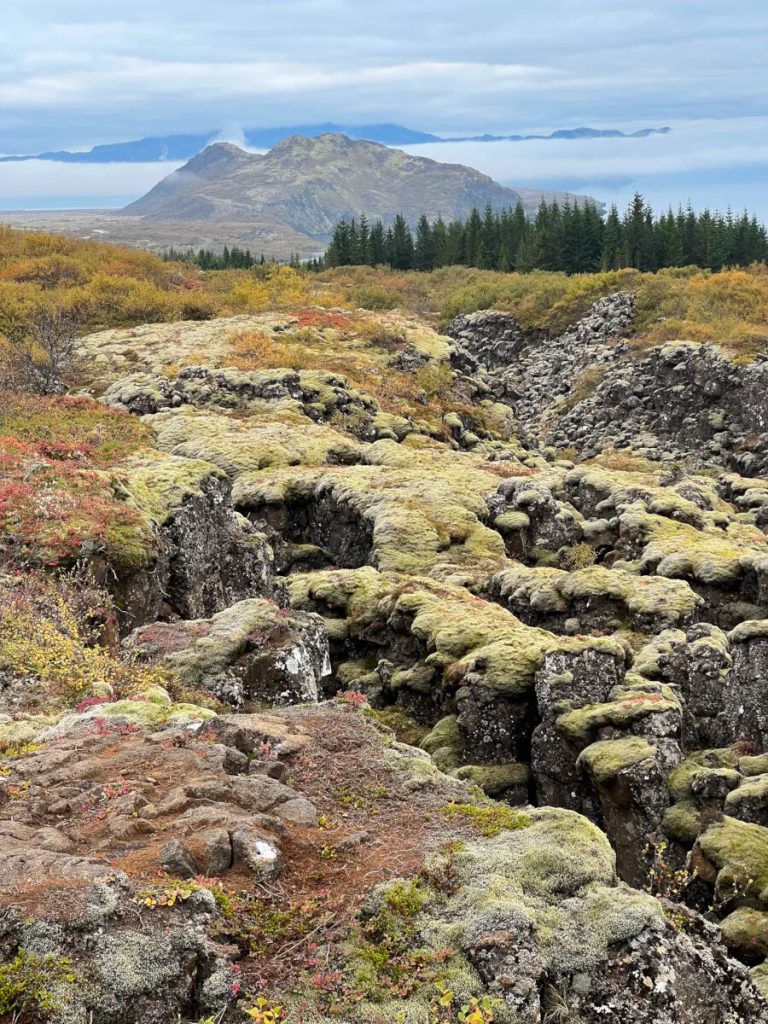
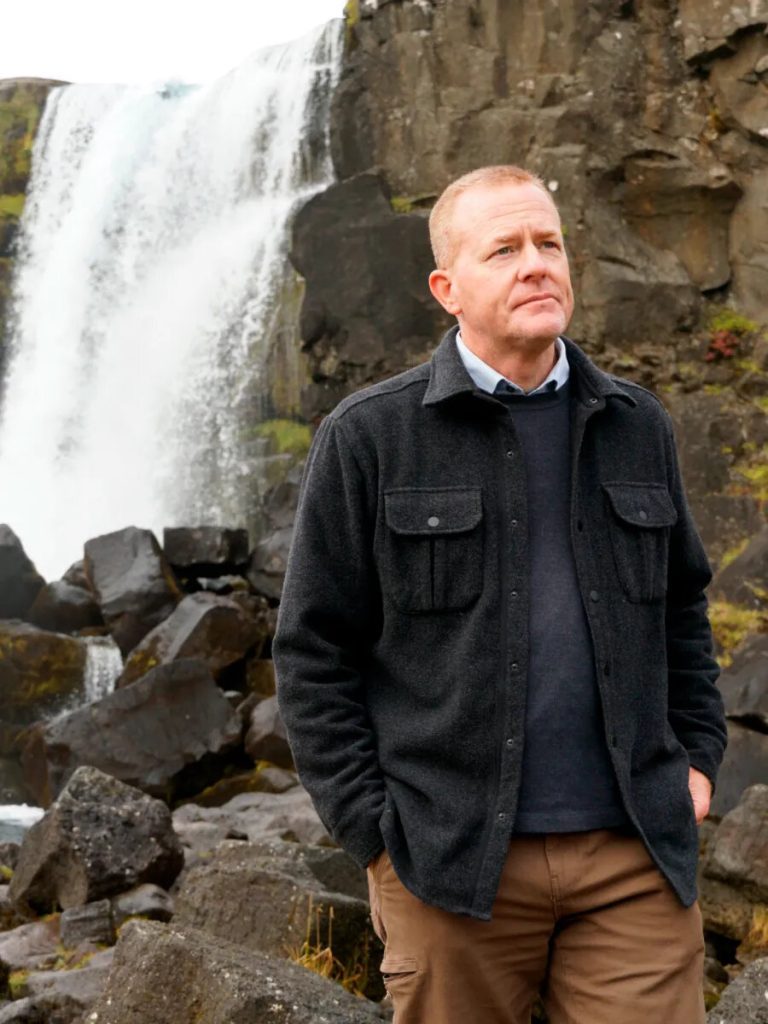
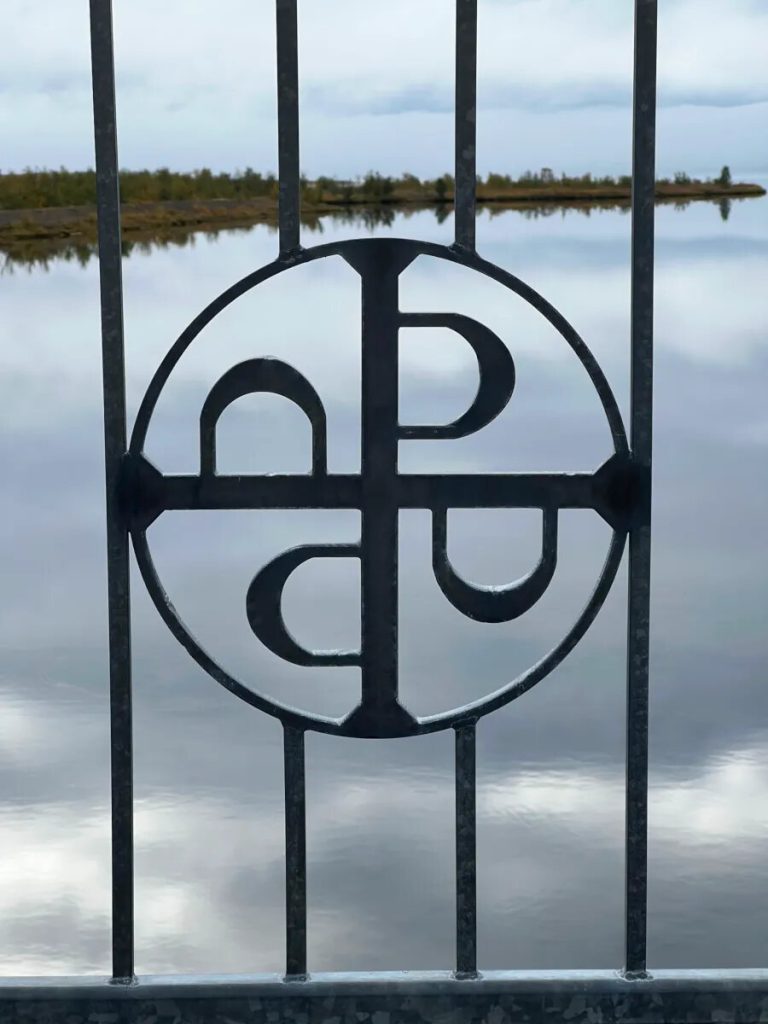
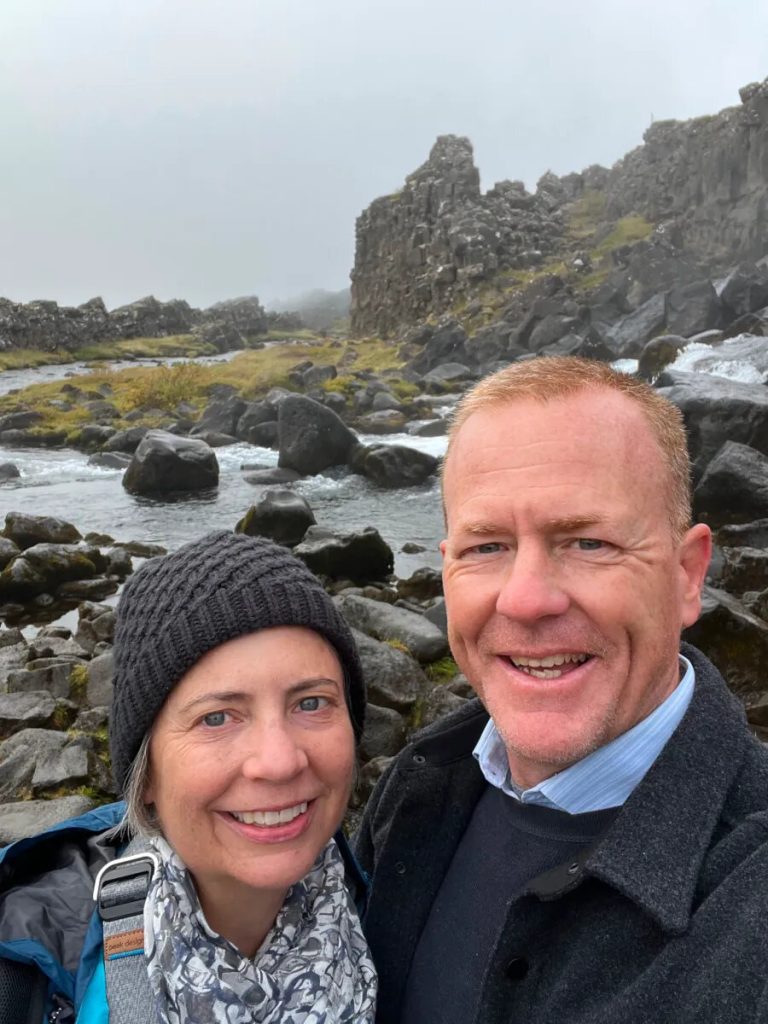
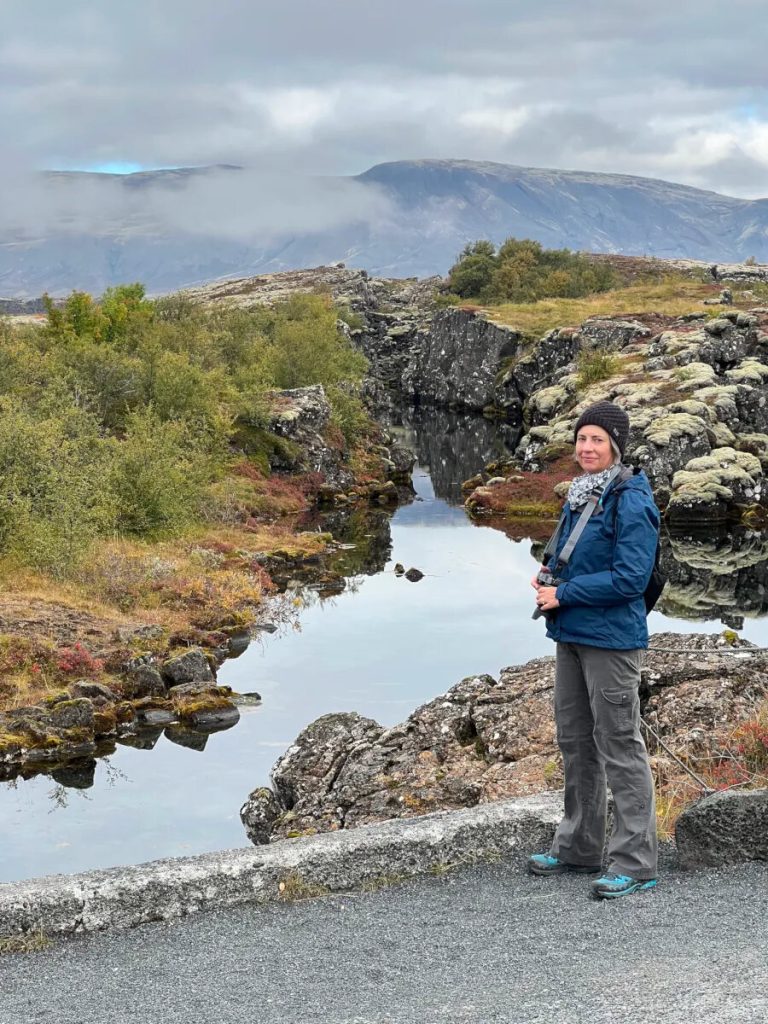
Learn more about this unique place at https://www.thingvellir.is/en/
Geysir
After Thingvellir, we went to the geyser, called Geysir. Unfortunately, we took no photos of the geyser (you have to be quick) and only one video. This is the start of the mp4. Picture a big column of water bursting up from the middle and tourists from all over the work filming it with their iPhone while ooh’ing and aah’ing.
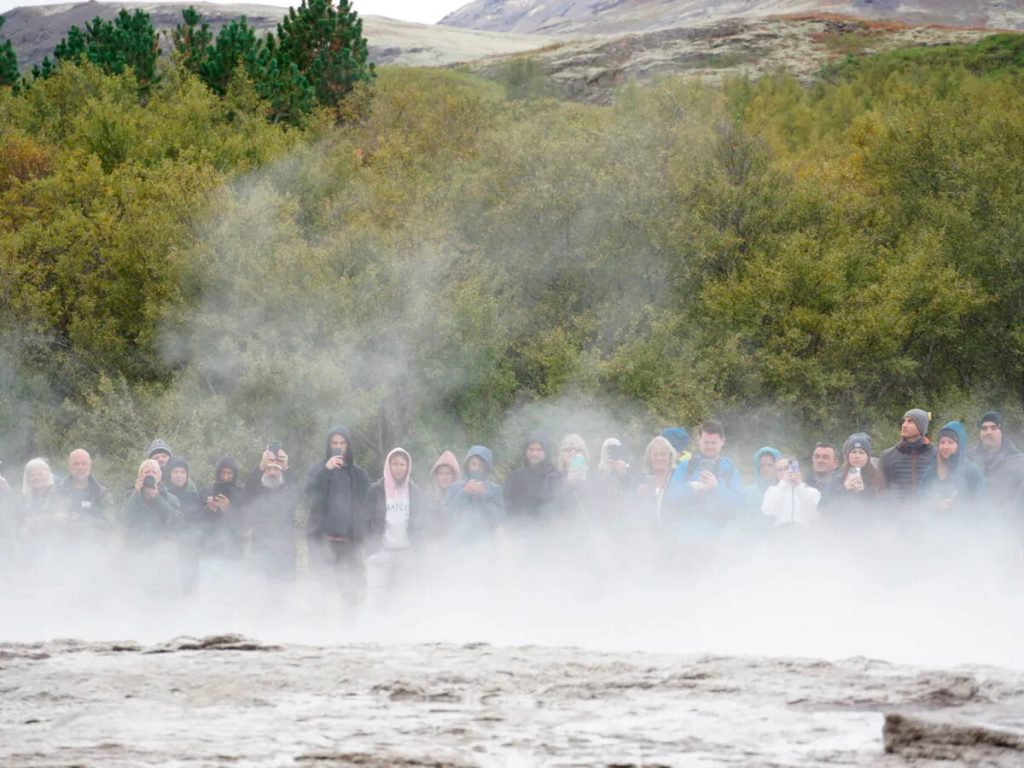
Gulfoss waterfall
After the geyser, we visited Gulfoss waterfall.
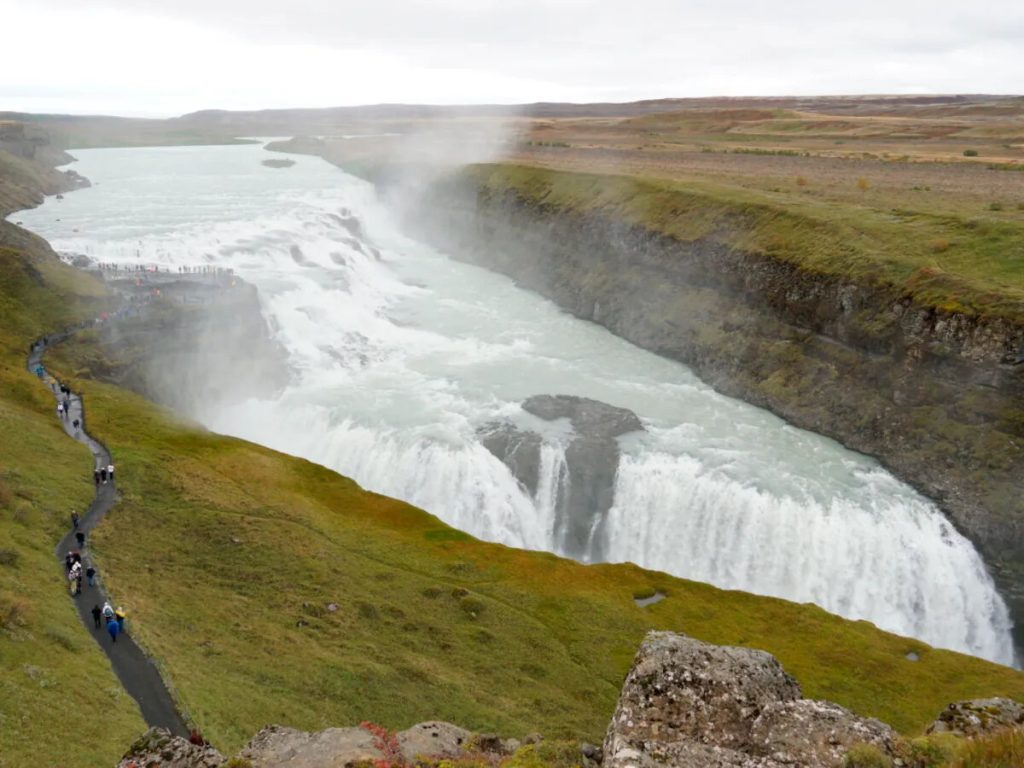
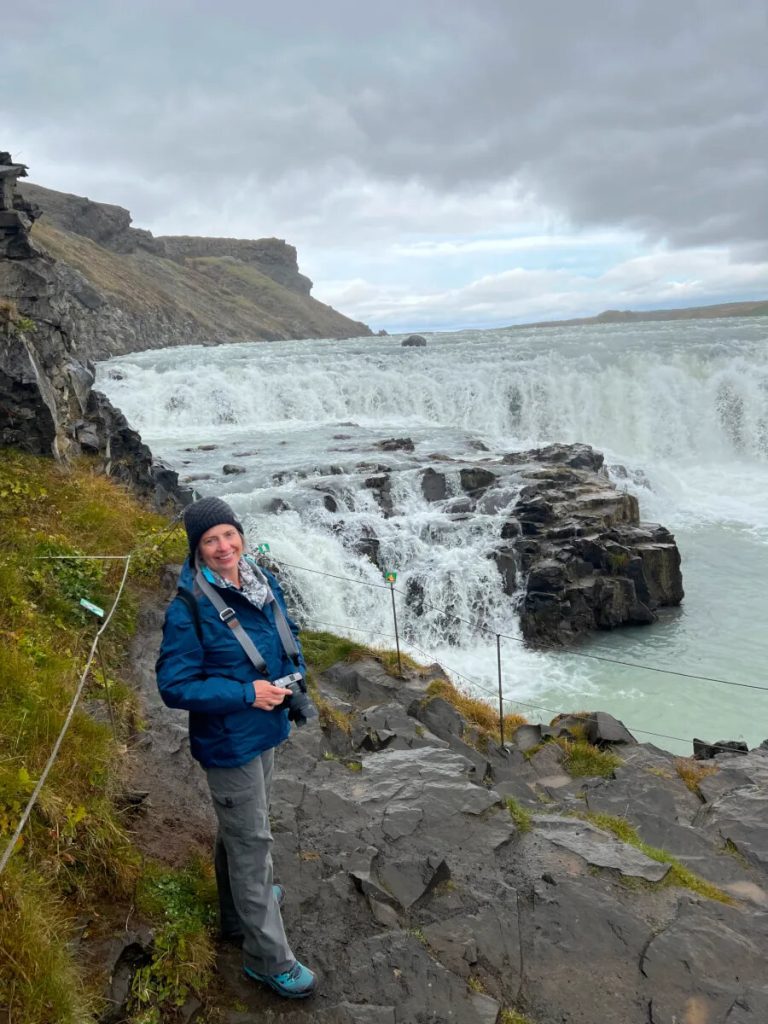
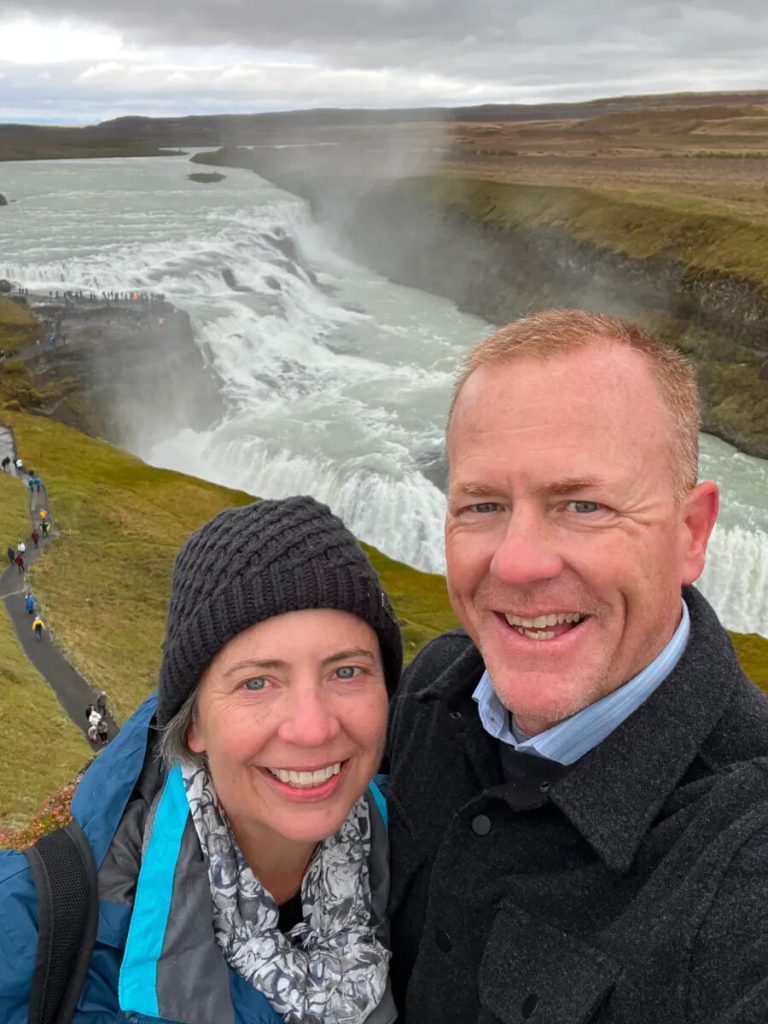
Kerið Crater
Our fourth and last stop on the Golden Circle was the Kerið Crater, which is a collapsed volcano. Sort of the geologic equivalent of a scar left by acne.
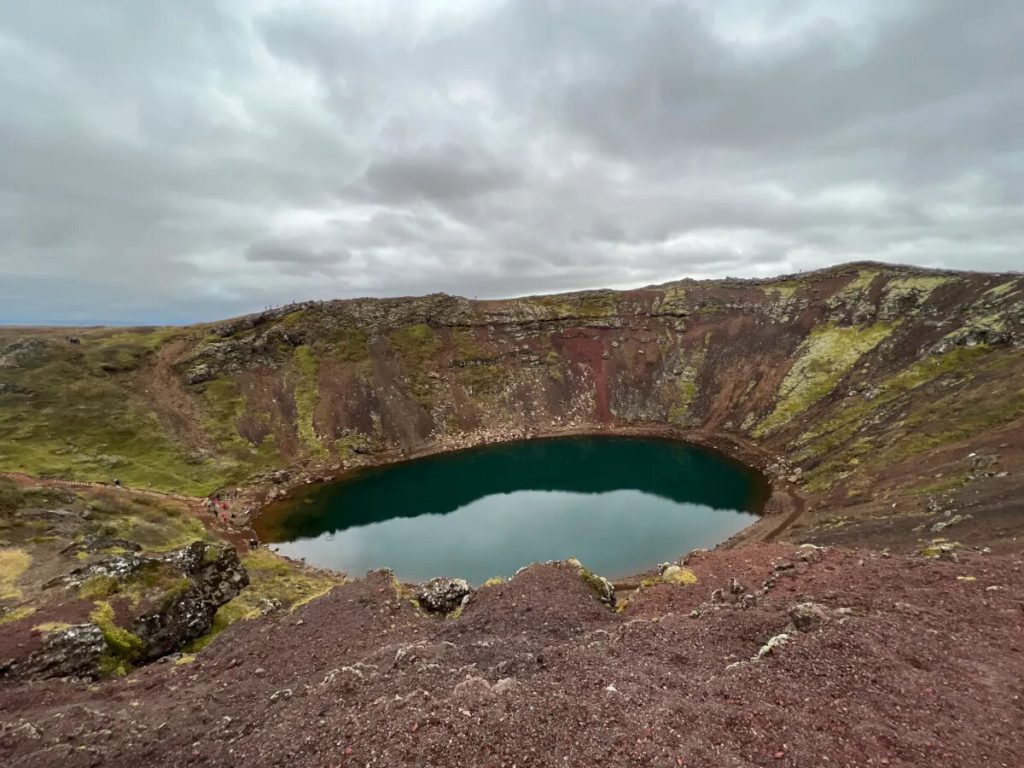
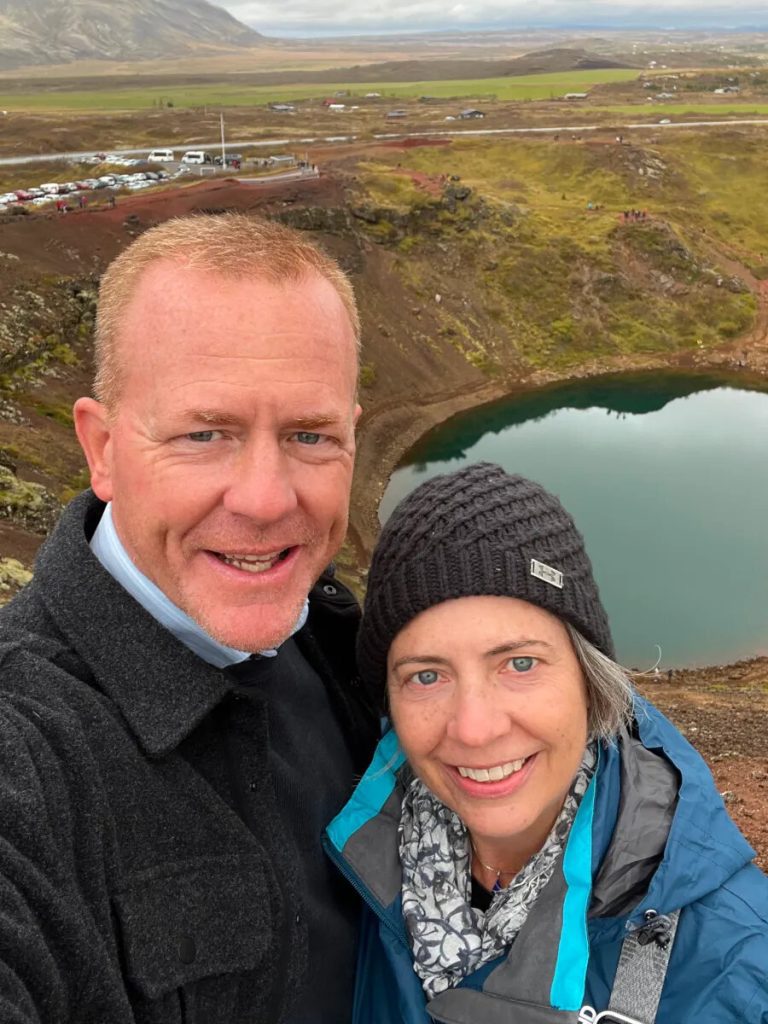
Keflavik
We spent our third and final night in the town of Keflavik at a hotel that felt more like a youth hostel but was conveniently located near the airport. Had to return the car at 0500 for a 0720 flight but it all worked great. We had dinner at the Hotel Keflavik and drove around town.
It was exciting to be there because Keflavik is a place I learned about as a Plebe at the Naval Academy The airport doubled (and still doubles) as an air base for Navy Maritime Patrol aircraft hunting for Russian submarines coming through the Greenland-Iceland-United Kingdom (GUIK) gap. Keflavik is one of those places that prospered as a result of the Cold War and is a strategically important location for NATO’s security of the north Atlantic. Iceland has done a great job of growing their tourism industry and leveraging their natural beauty to diversify the economy. They also are rich in green energy with the geothermal pressure cooker they live on top of. Island economies are also fascinating to observe; Iceland is exceptionally fascinating.
Summary
How much of Iceland can you see in a 72 hour layover? We only scratched the surface but we did our best to make the most of it: Blue Lagoon, Reykjavik, a spring fed hot river, the tectonic fissure at Thingvellir, geysers, waterfalls, and volcanic craters. All by rental car at $8.50/gallon for gas (and all the people we met were SO pleasant and positive).
We ate lots of fish and saw enough to know that it’s not hype when you hear people rave about Iceland. Perhaps someday we’ll take on the “ring road” but for now we have some great memories of a remarkably fertile and friendly nation, considering its name and its latitude (64-66N).
